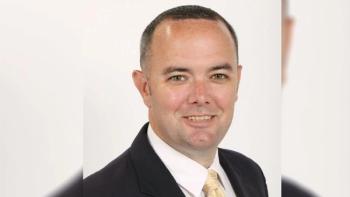
- Pharmaceutical Executive-01-01-2017
- Volume 37
- Issue 1
The ‘Healthcare Internet of Things’
Connected ecosystems will change the future of healthcare. Three key value drivers are outlined.
The US healthcare system is under constant pressure to reduce the cost of care while addressing the needs of a growing and increasingly unhealthy population. Opportunities to improve the systems that serve this vast industry abound, in particular with emerging technologies that currently address other, seemingly unrelated consumer needs.
It is my belief that, as the Internet of Things (IoT) continues to evolve, healthcare will be able to tap into the potential of an increasingly connected world. The current growth of connected devices is steadfast from wearable devices to in-home virtual assistants, so the dream of a fully connected world is steadily becoming a reality, and it could mean big things for healthcare.
Currently, IoT providers (e.g. Google, Microsoft or Amazon) are developing their solutions in isolation, fine-tuning their own licensed ecosystem of data and connectivity and providing users with an element of data exclusivity for their individual piece of the puzzle. The opportunity for growth and proliferation of these devices and systems, however, will come when we have a standardized, connected ecosystem.
Healthcare is an industry already struggling to reconcile the challenges presented by disparate data versus the possibilities presented by connectivity. Today, health information is scattered and siloed, with healthcare providers, payers and manufacturers often seeing a different version of the truth. However, if we as an industry can create greater inter-connectivity in a single ecosystem-a Healthcare Internet of Things-there will be significant benefits to patients, physicians, payers and drug developers. A connected healthcare ecosystem that spans from research and development all the way through to commercialization and treatment adherence could be just the solution for life sciences companies and payers seeking to demonstrate value from new treatment outcomes.
Here are three ways connected ecosystems and IoT can benefit healthcare and demonstrate value to the healthcare system.
1. Supporting patient adherence
With the advent of smart pills, glucose monitors and similar devices, we have already seen how such technology can improve patient adherence. As wearable technology continues to embed itself into everyday life, and life sciences companies seek out more viable and long-term applications for such devices and platforms, adherence rates will continue to increase.
Additionally, manufacturers will begin to integrate elements of gamification in health-related devices as they do in consumer tools, which will also help increase uptake. The underlying principles of gamification, something that triggers the brain’s reward pathways, will be designed to promote positive action and reinforcement for the correct, adherent behavior. This could be as simple as adding a points and badges reward system to a medical app, where patients earn points for taking their medication at the correct times of day. The ability to use this data and analyze behavior patterns for continual improvement will be game changing.
2. Improving patient outcomes
An ecosystem with patients leveraging diverse connected devices will of course create a deluge of new data. In real-time, healthcare practitioners will be able to monitor a patient’s health, activity levels and reaction to treatments. If a patient suffers a hypoglycemic episode or cardiac event, for example, that data can be fed directly back to the physician or specialist to take immediate action.
This goes beyond adverse effects and can include other elements that are often out of view of treating physicians such as sleep patterns, weather conditions, dietary information and any other factors that might impact outcomes. All of these indicators have a cumulative impact on the outcome derived from standard medical
interventions. In short, for the first time, healthcare systems will have a complete picture and be able to optimize treatments and the surrounding environment for better outcomes.
3. Accelerating access to new treatments
The significant amount of data generated by a connected ecosystem can do much more than impact an individual outcome-it can influence the future trajectory of research and development as well. Real-world evidence (RWE) is already championed for its ability to go beyond data captured in a controlled clinical trial environment to data captured in real-world scenarios. In fact, we are already on the cusp of seeing how RWE can impact access to treatments, thanks to recent amendments to the Cancer Drugs Fund in the UK. Under the new system, RWE will play a key role in determining the future reimbursement of many
interventions coming down the pipeline.
With the introduction of a Healthcare Internet of Things, those same devices that are improving adherence and patient outcomes could also include mechanisms that feed outcomes and efficacy data back to manufacturers in real-time, allowing closer alignment of new trials to the real world and the right patients. This feedback loop of performance and outcomes-based data could change the face of drug development as we know it.
While a fully formed Healthcare Internet of Things may be several years away at least, I’m confident that the benefits are numerous and that we are laying the groundwork now for a more connected, efficient future of healthcare. Crucially, during the next few years we must address the siloes we are accustomed to, using technology and expertise from multiple sectors to address these pressing market needs and embrace innovation and collaboration for a more cost-effective, outcomes-based healthcare system that benefits every stakeholder in the value chain.
William King is Founder and Executive Chairman of Zephyr Health. He can be reached at pr@zephyrhealth.com
Articles in this issue
about 9 years ago
Path of Uncertainty: Pharm Exec’s 2017 Industry Forecastabout 9 years ago
Biopharma Change Agent: Belén Garijoabout 9 years ago
Pharma and Biotech Markets: Challenges and Opportunitiesabout 9 years ago
Win Your Brand with Actionabout 9 years ago
The State of Market Insights in Pharmaabout 9 years ago
Country Report: Philippinesabout 9 years ago
Pharmaceutical Executive, January 2017 Issue (PDF)Newsletter
Lead with insight with the Pharmaceutical Executive newsletter, featuring strategic analysis, leadership trends, and market intelligence for biopharma decision-makers.




